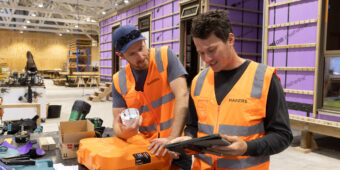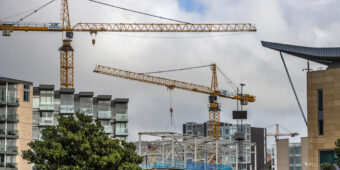Builders’ Business
27 Mar 2025, Uncategorized

Jakob Firth, Director, Stackhouse & Firth Construction
Location: Wellington
Q. Do you think the proposed law change to have remote inspections as a default setting is a good idea?
A. No, I don’t believe that having remote inspections as a default way of conducting inspections is a good thing. I think it’ll open up homeowners and clients to an element of risk – to potentially dodgy building work that isn’t discovered until it’s too late.
Additionally, I don’t think the use of remote inspections would speed us up, which is supposed to be one of the positive impacts. Currently, we can get an inspection within three days. Being unable to access inspections has never been a problem for us.
Q. Ensuring good relationships with subcontractors is a key part of getting projects completed smoothly. How do you do that?
A. We know that subbies need long lead times so they can organise their own workload, plan and prioritise jobs. We’ll try and avoid putting them under time pressure at all costs, and to do that we send out a detailed programme, so they’re fully aware of what’s coming up in the future and they can plan their work.
We’ve worked with most of our subbies for around five years, so we know they’re good and easy to manage. Having a longstanding relationship helps a lot as well, and in fact, we’ve become close with a lot of them in our personal lives as well. We all get on with each other pretty well, and that makes life a lot easier.
Having good relationships with subcontractors helps us with our client relationship management. We know we can put them face-to-face with clients, and they’ll be polite and leave a good impression.
The subcontractors we use also know the work and its requirements. They do a lot of work in multi-unit townhouses, and it’s a bit of a rinse and repeat process.
Kevin Beaver, General Manager, Woodridge Homes
Location: Wellington
Q. The Government has proposed a merger of Building Consent Authorities (BCA) to smooth the consenting process for builders. Are you in favour of the proposals?
A. I think merging BCAs is a very good idea. In fact, we’ve been advocating for it for some time. I think it’ll create efficiencies, especially when it comes to processing consents. I believe it’ll improve consistency in decision making, and the larger pool of resources means that you can train Building Consent Officers better – which will result in a better outcome for everyone.
Currently, we struggle with unpredictable responses from different BCAs across the greater Wellington region, which all handle consents slightly differently from each other and have different interpretations of the rules. That combines to make things difficult for builders.
Q. Do you think the proposed law change to have remote inspections as a default setting is a good idea?
A. Remote inspections could be a dangerous move. It’s my belief that default physical inspection would be the better option, with remote inspections used when needed. In Wellington, inspection times aren’t the biggest hold-up in the process, and I think offering remote inspections as a time saver wouldn’t be the best result. In my opinion, there’s no one single thing that results in a hold-up – there’s hold-ups throughout the whole process!
Q. The Government is proposing ‘commonsense changes’ to H1 insulation standards, such as removing the option to use the schedule method of compliance. Are you in favour of that?
A. I think the change to remove the schedule method [as a method of compliance] isn’t necessarily a bad thing; it’ll just mean that people building homes will need to upskill themselves on the calculation method and the modelling method. If those are the two best solutions, we’ll have to learn how to manage it.
However, in general, I think the changes to H1 probably went too far, too fast. In New Zealand, we have a habit of changing things too dramatically, and I think the balance we need is somewhere in between what we had before [the 2023 H1 changes] and what we have now.
Register to earn LBP Points Sign in



